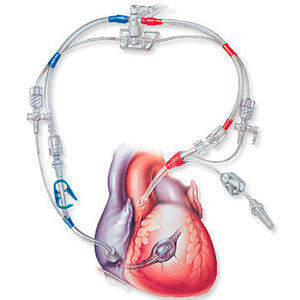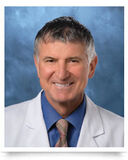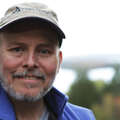Ask the Expert: Safety, Technology & Heart Valve Surgery
By Adam Pick on May 6, 2014
As a patient, I distinctly remember the questions that raced through my brain when I learned that I needed open heart surgery. Those questions sounded a little something like “How do they fix my valve?” and “What will the recovery be like?” and “Will it hurt?” and, of course, “Is heart valve surgery safe?”
That last question about safety is critically important for many reasons. So, to learn more about the safety of heart valve procedures, I met with Dr. Christopher Gibson. During our conversation, Dr. Gibson shared many insights about how technology has enhanced the safety and the mortality rates of valvular procedures.
I hope this video helped you learn how technology is improving the safety and the mortality rates of open heart procedures including heart valve operations.
On behalf of our community, I would like thank Dr. Gibson for taking the time to share his clinical experience and research with us. In addition, I would like to thank Dr. Gibson for successfully treating several patients in our community at St. Bernardine Medical Center — including Fred Stieg and Eugenie Magana.
Keep on tickin!
Adam
P.S. For the hearing impaired members of our community, I have provided a transcript of my video interview with Dr. Gibson below.
Dr. Gibson says: I’m a cardiothoracic surgeon which means that I perform cardiac surgery on the heart and lung surgery which is considered thoracic surgery. I perform the majority of my surgery at St. Bernardine’s Medical Center in San Bernardino, California. I have been in this hospital for 26 years. I’ve been practicing cardiac surgery for almost 30. In the course of that time I have probably performed in the range of 7,000 to 8,000 open heart operations.
Cardiac surgery is what I wanted to do first and then I went to medical school and I found that virtually every rotation I was on I really loved. Medicine is an amazing profession. Cardiac surgery took the longest amount of training. It was sort of like at the very end of the alley and you continued to do general surgery, vascular surgery, continued to want to learn how to do things better, and finally went on to do cardiac surgery.
When I started doing cardiac surgery, the operations tended to be less involved and simpler. It was before the advent of catheter intervention with the cardiologist and we frequently operated on people that were 50 years old that had normal hearts and a two-vessel bypass. Today, we’re operating on people that are 80 years old, have a lot of problems with their heart. They may need four, five, six vessel bypass, one valve or two valves being operated on.
During my career, the top three technological advances have involved in making the surgery safer. Being able to preserve the heart with cold solutions including potassium, amino acids and sugars were extremely important, what we call retrograde cardioplegia. A catheter put into the big vein in the back of the heart that ices it down, we can keep a heart stopped for two or three hours to do these surgeries and do them very meticulously.

Diagram of Retrograde Cardioplegia
The second advent was the development of new clamps. In the early days, there were very large steel clamps that you could only put in one place and as time went on, using technology that allowed the clamps to become smaller, the jaws to become soft that we put in different areas, it made the surgery a lot safer in terms of loosening up material in the ascending aorta which would give rise to strokes, where if that material went to the rest of the body such as your intestines or your legs, you could die because of that. Having those techniques decreased the stroke rate with surgery from seven percent to three percent to down around a half of one percent today.
And then the third thing was probably the advent of the heart valve technologies, the different products that came on the market. The initial valves were very large and bulky and loud. Now, we have a wide range of things that we can use today and tailor to each patient.
Mortality rates, even today, in smaller hospitals can be as high as ten percent (10%) with cardiac surgery. When I started in the field, they were routinely seven percent. I think today, in our hospitals and our practices, depending on the patients you operate on, they’re in the range of one or two percent. That’s been an incredible improvement and the field has just evolved tremendously.
My advice to a patient would be to just go to a hospital that does a large volume of cardiac surgery because it’s a very complicated field and these are operations that need a tremendous amount of support and they need very experienced people. I think that is absolutely key.
|
Joan says on May 13th, 2014 at 2:35 pm |
|
Thank you Adam, I am going to have my aortic valve surgery probably within the next year. so my doc thinks . I am really scared all the info you have sent me has helped with my fears . I appreciate it so much. warmest regards Joan |
 |
|
John Ure says on May 14th, 2014 at 12:17 am |
|
Adam |
 |











